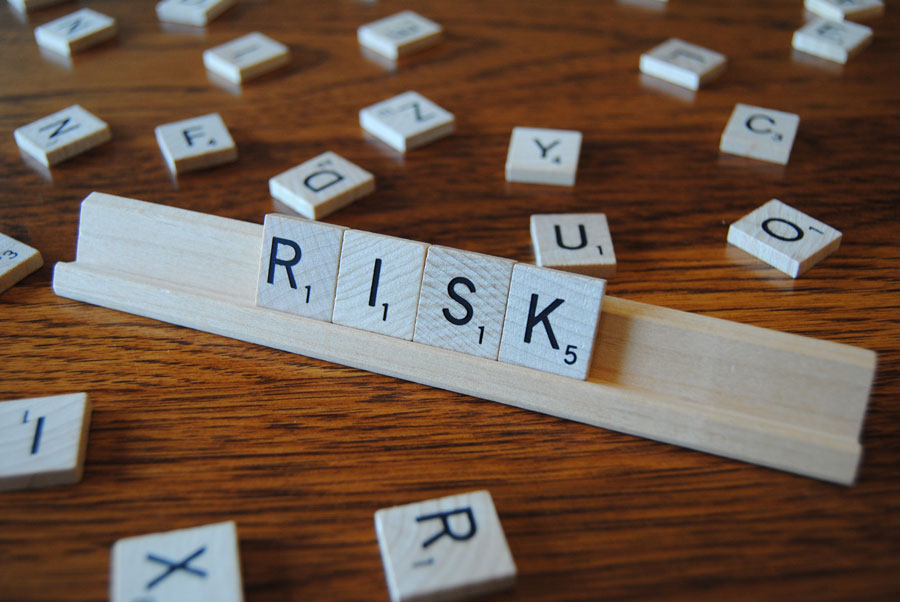photo by GotCredit/ CC By-2.0
In today’s market, there is plenty of investment tools available out there be it shares, forex, bonds, unit trust, REITs etc. There’s no doubt that some investments are subject to higher amounts of risk than others. Historical data shows that stock markets are much more volatile and bonds a lot less reliable compared to property investment. However, many things can go wrong in property investment and the risk is amplified if you leap in without first doing your homework or seeking professional advice and devising a sound strategy and investment plan.
Investment risk is inevitable facts of life but many of the successful people often make mistakes on their journey to success. What really matters is how you respond to these losses and what have you learnt from it.
“Show me a person who has never made a mistake and I’ll show you somebody who has never achieved much” – Joan Collins
One should not avoid going into property investment just because afraid of losses. Many risks associated with property investment can be mitigated with good analysis, planning and anticipating various things that might go wrong along the process.
Let’s look at some major potential risks in property investment:
Market risk
Market risk may affects all investments in an asset class in a similar manner. Fluctuation in property prices can be due to unstable economy condition or political situation of any particular country that you are investing in. Despite short term gain, property investors should also focus upon longer investment time horizon that allows greater opportunity when the market recover.
Currency risk
If you have a diversified portfolio (overseas investment), one of the major risk will be foreign exchange risk where your value of foreign investment will be fluctuating according to the current exchange rate. Generally, currency risk tends to be greater for shorter-term overseas investments.
Liquidity risk
One has to understand that property investment is not considered to be “liquid” because you can’t withdraw your investment quickly and you may be unable to buy or sell an investment as and when you desired.
Interest rate risk
Interest rates might rise or fall, which will affect the mortgage repayments. Property investors should retain liquid buffer in order to mitigate the risk of mortgage default. Don’t over-commit and always make sure you can afford your repayments because one day interest rates might rise by more than a few percentage points.
Property title issue
This is applicable in Malaysia now where title is not obtained by property developer after 10 years of completion in any particular project, some banks are reluctant to finance. This means if you bought a property and after 10 years you would like to sell but your property is still under master title, then there is a risk where your buyer (assuming a loan buyer) couldn’t get any financing. This is happening at the time of writing with two local banks. However, if the project is developed by reputable developer, then the risk of not getting financing is lower.
Bad neighbourhood, location, amenities
All these will cause less demand for the property and property prices will not rise that much over long period of time.
Maintenance and management issue
Regardless of how new is your property, you cannot get away from maintenance issue. These problems are unavoidable in most cases. Never ignore maintenance issues as they will only get worse along the way and can cause you to lose good tenants. Always make sure you have put aside some extra buffer in your financial planning so that you can pay for it when it’s needed such as to repaint the house, leakage problems etc.
Undesirable elements such as bad tenants
Sometimes, there are the tenants who fail to pay their rent for months or do not take good care of your property. A strict screening process is a must and you should always make sure that your property be protected with adequate insurance coverage.
Timing risk: The highs and lows of housing markets
Property bought during the wrong time (where prices is at the peak) lead to lower returns. Investors should understand that our property markets run in cycles, with values rising, stagnant, falling and rising again that driven by economic factors, along with consumer sentiment and spending.
Again, it is about being well prepared and investing wisely. You have to educate yourself with the current cycle to make sure you know when the best time to invest is. If you want to know more about Malaysia’s property cycle and where are we now in the cycle, click here.
Smart investors will always buy well located and good grades properties (those that are in continuous strong demand from buyers, with excellent amenity, infrastructure and transportation link). Normally these types of properties will not fluctuate significantly in price.
Developer’s risk
In certain cases, delayed in completion might happened or the worst case scenario will be abandoned projects
Cash flow interruptions
Especially during the periods when the property purchased may be vacant without any rental income, investors have to fork out additional money monthly to pay for the monthly instalments. Always invest in properties with vacancy occupancy rates more than 70%.
Understanding these risks and having a clear risk mitigation strategy is an essential part of any informed investment decision. Risks aside, investing in property still is the best way to reduce your investment risk without hurting your yields and enable you to benefit from compound capital growth at the same time. Property is a long term game, hence it is always advisable to have a wide range of properties in your portfolio (short term and long term, residential and commercial, rental income and capital gain).
The bottom line is, you can never predict the pitfalls you might face as a property investor. But you can be prepared.










2 responses to “Risk of Investing in Property”
Always invest in properties with vacancy rates more than 70%?
It’s ‘occupancy’. Thanks for pointing that out! 😉